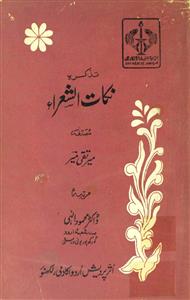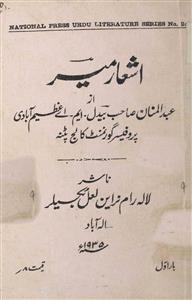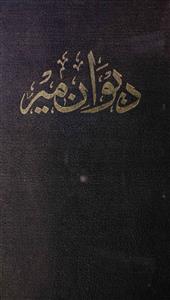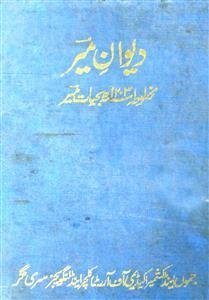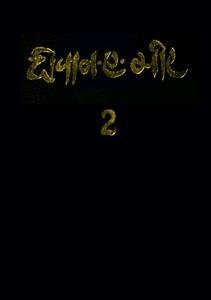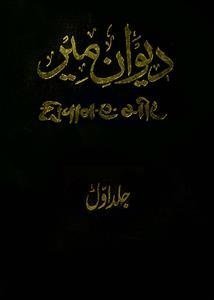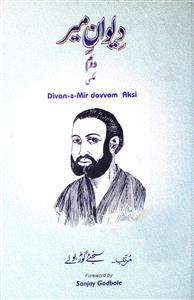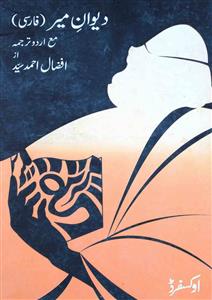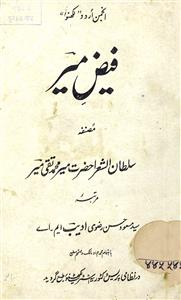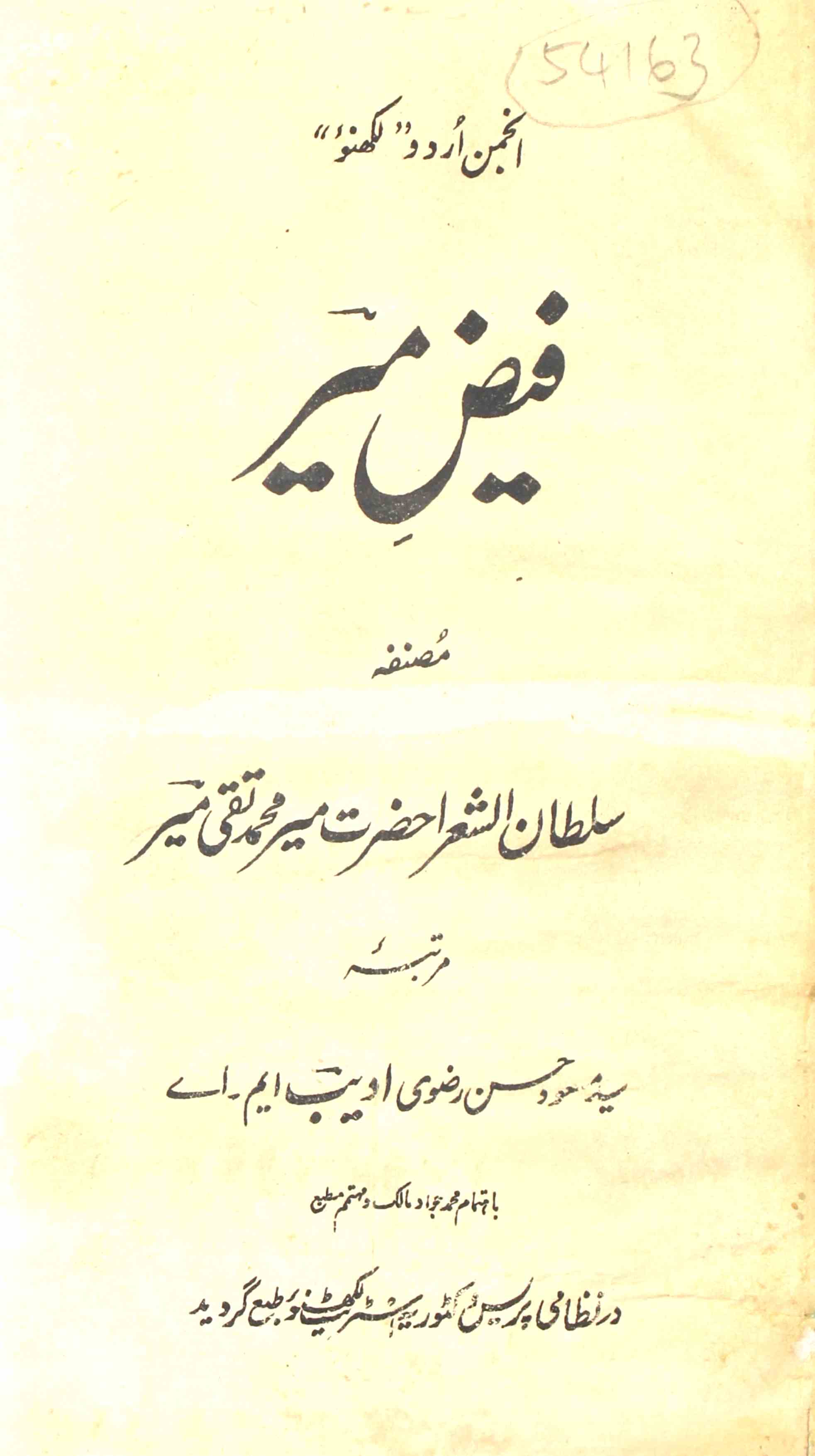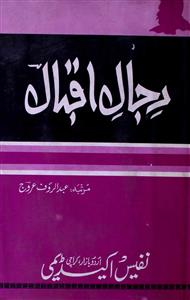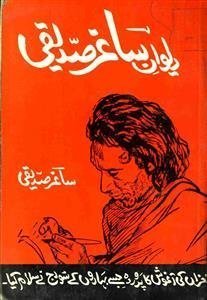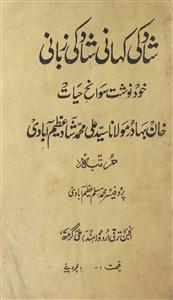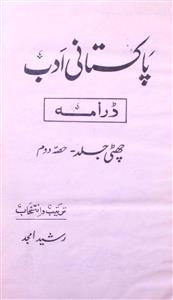 For any query/comment related to this ebook, please contact us at haidar.ali@rekhta.org
For any query/comment related to this ebook, please contact us at haidar.ali@rekhta.org
About The Book
خدائے سخن میر تقی میراردو کے عظیم شاعر ہیں۔میر نے شاعری کی ہر صنف میں طبع آزمائی کی ہے۔نثر میں بھی تین تصانیف میر کی یاد گار ہیں۔جن میں ایک فارسی" تذکرہ نکات الشعراء"ہے۔جو اردو کا اولین تذکرہ ہے۔تذکرے کو نہ بیاض نویس کی مختصر بیانی راس آتی ہے اور نہ تاریخ نگار کی مفصل بیانی۔تذکرہ نگار اپنے حدود میں رہ کر شعرا کے حالات رقم کرتا ہے۔کلام پر رائے دیتا ہے اور کچھ انتخاب پیش کرتا ہے۔میر نے اپنی تذکرہ میں 104 شعرا ءکے مختصر حالات اور منتخبہ کلام شامل کیا ہے۔جن میں بتیس شعرا دکن اور ماباقی شمالی ہند کے ہیں۔چونکہ یہ اولین تذکرہ ہے اس میں میر صاحب کی اختراعی طبیعت کے جلوئے دکھائی دے رہے ہیں۔یہ تذکرہ معلومات کا خزانہ ہے۔جس میں میر اپنے ایک منفرد اندازمیں نظرآتے ہیں۔نکات الشعر اکا میر بار باش،زندہ دل گپ شپ کرنے والا، میلے ٹھیلوں کا عاشق ،عرس میں راتیں گذارنے والا،بزرگوں کا احترام کرنے والا،مخالفین کے لیے بھی نرم گوشہ رکھنے والا ہے۔جیسےجیسے ہم نکات الشعرا ءپڑھتے جاتے ہیں میر صاحب کی شگفتہ اور زندہ دل شخصیت کے نقش ابھرتے جاتے ہیں۔یہ کتاب متنازع فیہ بھی رہی کہ میر نے اس میں دو ٹوک باتیں بھی کہی ہیں۔اپنے زمانے کے شعرا کی تنقید بھی کی ہے۔ان کے اشعار میں ترمیم اور اصلاح بھی کی ہے۔جن اشعار کی اصلاح میرنے کی ہے وہ اشعار بہترین ہوگئے ہیں۔جس کوبعدمیں کسی نے مسترد نہیں کیا۔اس تذکرہ کی اہمیت کئی طرح سے ہے۔اول تو یہ اردو شعرا کا پہلا تذکرہ ہے،اس لیے اس کی تاریخی اہمیت ہے۔دوم یہ میرتقی میر نے لکھا ہے جو خود عظیم شاعر ہیں،سوم اس میں ڈھائی سو برس قبل کے اردو شعرا کے بڑے شگفتہ اور کامیاب خاکے ہیں،ان کے بہترین اشعار بھی شامل ہیں۔چہارم اس میں اردو شاعری تنقیدکے اولین خد وخال ہیں۔پنجم یہ کہ میر کے تنقیدی پیمانے جان کر ہم ان کی شاعری کا بہتر شعور حاصل کرسکتے ہیں۔میر کے تذکرہ کی اہمیت اس اعتبار سے بھی ہے کہ اس میں ایسے بے شمار فن کاروں کو بے نام و نشاں ہونے سے بچا لیا ہے جن کے کارنامے یا تو کسی وجہ مدون نہ ہوسکے یا مدون ہونے کے بعد ضائع ہوگئے ۔اس کے علاوہ یہ تذکرہ چونکہ روا روی میں لکھا گیا تھا اور اولین کوشش تھی اس لیے اس میں کئی خامیاں بھی نظر آتی ہیں۔جیسے شعرا کی ترتیب کا کوئی اصول نہیں تھا۔انھوں نے نہ تو شعرا کی تقسیم طبقات کے لحاظ سے کی ہے اور نہ ان کا ذکرحروف تہجی یا حروف ابجد کی ترتیب سے کیا ہے۔شعرا ئے دکن کا ذکر یکایک ایک مختصر سی تمہید کے ساتھ وسط کتاب میں آجاتا ہے، پھربغیر کسی تمہید کے شمالی ہند کے شعرا جگہ پاتے ہیں۔شعرائے دکن کے لیے میر نے عزلت کی بیاض سے استفادہ کیا ہے۔میر کی اس روش سے یہی اندازہ ہوتا ہے کہ میرنے یہ تذکرہ جلد بازی میں مکمل کیا ہے۔ زیر نظر تذکرہ کو محمود الہی نے مرتب کیا ہے۔
About The Author
Maohammad Taqi (1722/23-1810) was born in Akbarabad, now Agra, in a family of very modest means. His father, a pious man of high spiritualist leanings, wished him to follow the path of piety and got Syed Amanullah, a young man who revered Meer’s father, to mentor him. The two did not live long enough to see Meer grow as they wished. Left on his own at an early age of eleven, Meer had to fend for himself then, and thereafter. As he had to explore the means of his livelihood, he went to Delhi where he met Khwaja Mohammad Basit, a kind man, who introduced him to Nawab Samsamuddaulah with whom he found favour. The nawab provided him with the source of his sustenance but it did not last long as he was killed facing Nadir Shah’s attack. Forlorn once again, Meer veered between Delhi, Agra, and its neighbourhood finding irregular support from several nobles for meeting his day-to-day- needs. While he suffered immeasurably at a personal level, he also witnessed the attacks of Nadir Shah and Ahmad Shah Abdali on Delhi, and the decline of Mughal Empire. As Delhi stood derelict and saw the men of taste leaving one by one, he too left. He was called by Nawab Asifuddaulah to Lucknow where he found relief but the extreme sensitivity of his nature did not let him live in peace for long. He refused the favours from the nawab and retreated into his own shell of loneliness and suffered his misery. Happiness was only a short season in Meer’s life; pain a perennial condition. He lived without an address in life, as in death, since the place he was buried is no longer traceable after the laying of rail tracks in the vicinity.
Meer is generally supposed to be a poet of angst but his greatness lies in how he unravelled the existential dilemmas, developed a form, evolved his diction, and brought it to perfection. One of the most remarkable features of his poetry is that he has expressed himself with complete sincerity and disarming frankness on almost every aspect of life and living. This is well testified by the six divans of Urdu and one of Persian ghazals he has left behind, apart from his mathnawi, musaddas, qasida, hajw, and wasokht. He also wrote Nukatusshuara (a tazkira of Urdu poets) Zikr-e Meer (an autobiography), and Faiz-e Meer (a description of Sufi saints) which ensure him a place of prominence in the annals of Urdu literature as a poet, biographer, and critic of sorts.
 For any query/comment related to this ebook, please contact us at haidar.ali@rekhta.org
For any query/comment related to this ebook, please contact us at haidar.ali@rekhta.org
